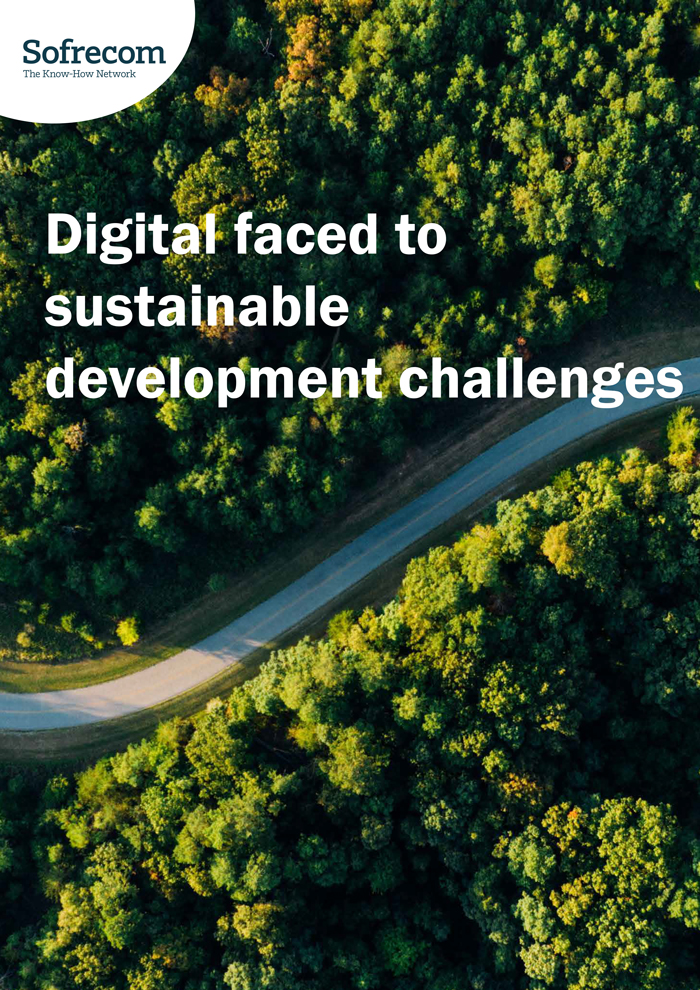
With the assistance of Sofrecom, which adapted the MCI for use in the operator's activities, our client had the opportunity to position itself as the first company in the sector to adopt it as part of its commitment to the circular economy.

In 2020, the degree of circularity* worldwide was still significantly below the 10% mark. The global context of strong tensions on supply chains makes the dependence of companies and states increasingly strong. Therefore, efforts need to be concentrated on substitution, but especially on circularity and traceability.
The Ellen MacArthur Foundation and the MCI
Since 2009, the Ellen MacArthur Foundation has been sharing the principles of the circular economy to contribute to building a more sustainable future.
In collaboration with Granta Design, this foundation developed an indicator in 2015, the MCI: Material Circularity Indicator, whose methodology relies on real and objective quantitative data, unlike other indicators mainly based on qualitative ratings.
The calculation of this index requires the collection of data on components, their "life," and especially their reuse at the end of the cycle. This data collection is the main challenge of the MCI, with the possibility of going into detail about the materials incorporated into a product. To meet this challenge, it will be necessary to work closely with the ecosystem to improve material traceability and make the collection less time-consuming.
The Methodology of the MCI
The use of weighted averages allows the calculation of the MCI for a portfolio of products, as well as for a company, defined as the sum of its products.
It is a mathematical formula with a result between 0 and 1:
- 0 being the score of a completely linear product (100% virgin materials for production, 100% waste at the end of life),
- 1 being the score of a completely circular product (0% virgin materials, 0% waste).
Based on a detailed open-source methodology step by step, it can be easily used in Excel, making the calculations transparent and accessible for the user.
This indicator, co-financed by the European Commission and supported by a wide range of stakeholders (investors, regulators, consulting firms, universities), has been tested by a group of pilot companies using real product data.
According to this method, increasing a product's circularity relies on 6 principles:
- Sourcing biological materials from sustainable sources,
- Using raw materials from reused or recycled sources,
- Keeping products in service for a longer time,
- Reusing components or recycling materials after product use,
- Using products more intensively,
- Ensuring that biological materials remain uncontaminated and biologically accessible.
The MCI Focuses on the Entire Product Life Cycle
The MCI requires data collection throughout the value chain. It aims to measure the flow of materials from production to end-of-life, taking into account the usage phase, which allows identifying improvement levers at different stages of the value chain.
It requires data from manufacturers (upstream) and recyclers (downstream), taking market conditions into account, as it compares the product's lifespan to the average lifespan of equivalent products on the market. It provides a solid foundation for building a circularity indicator to measure material flows associated with all types of products, helping companies truly transition from a linear to a circular economy. However, the MCI needs to be complemented by other studies to consider environmental and economic considerations, such as carbon footprint, biodiversity loss, and soil degradation, for example.
With the help of Sofrecom, which adapted the MCI for use in the operator's activity, our client had the opportunity to position itself as the first company in the sector to adopt it as part of its commitment to the circular economy.
*Circularity means the continuous reuse of materials and resources.







